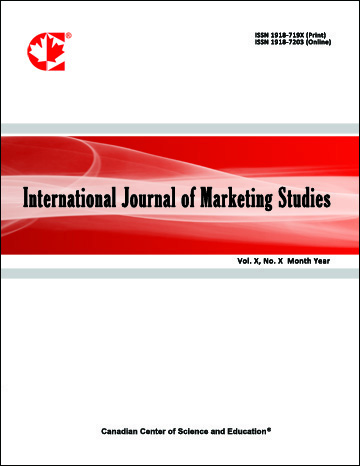Digital Greenwashing in the Age of Sustainability Marketing: A Meta-Analysis of Consumer Perception, Detection, and Backlash
- Miracle Eze
Abstract
Over the past years, the rise of sustainability-driven marketing in the digital sphere has transformed the way in which brands communicate about environmental responsibility, a turn of events that has also heightened concerns about greenwashing (i.e., false claims that inflate or invent sustainable practices). This research critically analyses the changing nature of greenwashing in digital times by incorporating the knowledge of 24 peer-reviewed studies carried out over the last 6 years (2020–2025). In addition, the research bases its scholarship within marketing, psychology and environmental communication literature to critically examine the perception, recognition and reaction of consumers to greenwashing in online environments, including social media platforms, e-commerce, and corporate websites.
Research shows that consumers are becoming more aware of deceptive sustainability claims. However, their ability to detect them remains inconsistent due to cognitive biases, trust in different platforms, and the complexity of digital marketing tactics. Importantly, the research shows that consumer reactions to greenwashing detection have become more severe because people lose trust in brands and sometimes publicly shame them and boycott their products. The research reveals that these backlash patterns are most intense among younger, digitally literate consumers who are also most active in industries with significant environmental impact, such as food and fashion. The findings from the research, therefore, highlight a significant disconnect between consumer intent (in terms of supporting sustainable brands) and their ability to detect authentic sustainability.
In light of this, this paper presents a conceptual framework to assess consumer reactions to greenwashing while proposing policy solutions to improve transparency in communicating digital sustainability. The results demonstrate that reinforced digital literacy training, in combination with stronger regulatory control, is necessary to empower and protect consumers in an environment perpetuated with increasingly greenwashed digital information.
- Full Text:
 PDF
PDF
- DOI:10.5539/ijms.v17n2p32
Journal Metrics
Google-based Impact Factor (2021): 1.34
h-index (July 2022): 70
i10-index (July 2022): 373
Index
- Academic Journals Database
- CNKI Scholar
- EconBiz
- Electronic Journals Library
- Excellence in Research for Australia (ERA)
- GETIT@YALE (Yale University Library)
- Harvard Library
- IBZ Online
- Infotrieve
- JournalTOCs
- LOCKSS
- MIAR
- PKP Open Archives Harvester
- RePEc
- ResearchGate
- ROAD
- Scilit
- SHERPA/RoMEO
- Stanford Libraries
- UCR Library
Contact
- Alyssa SunEditorial Assistant
- ijms@ccsenet.org
